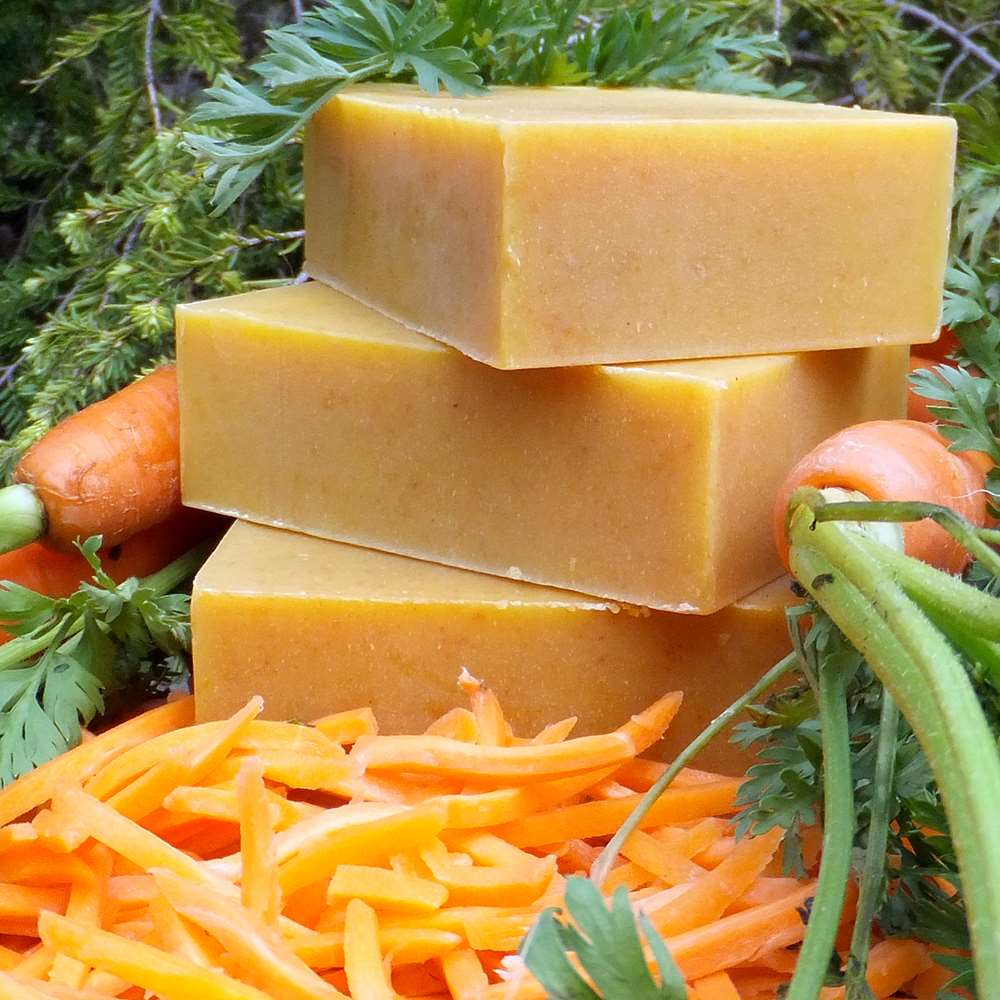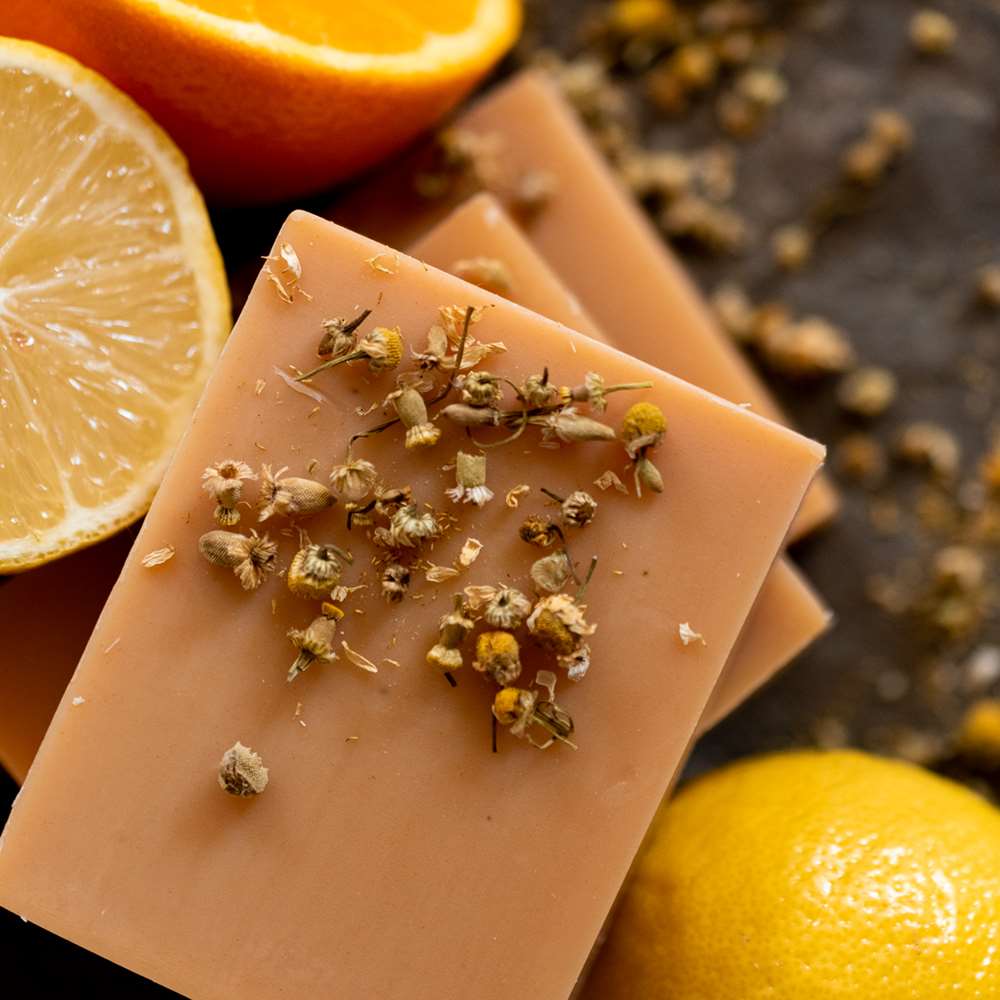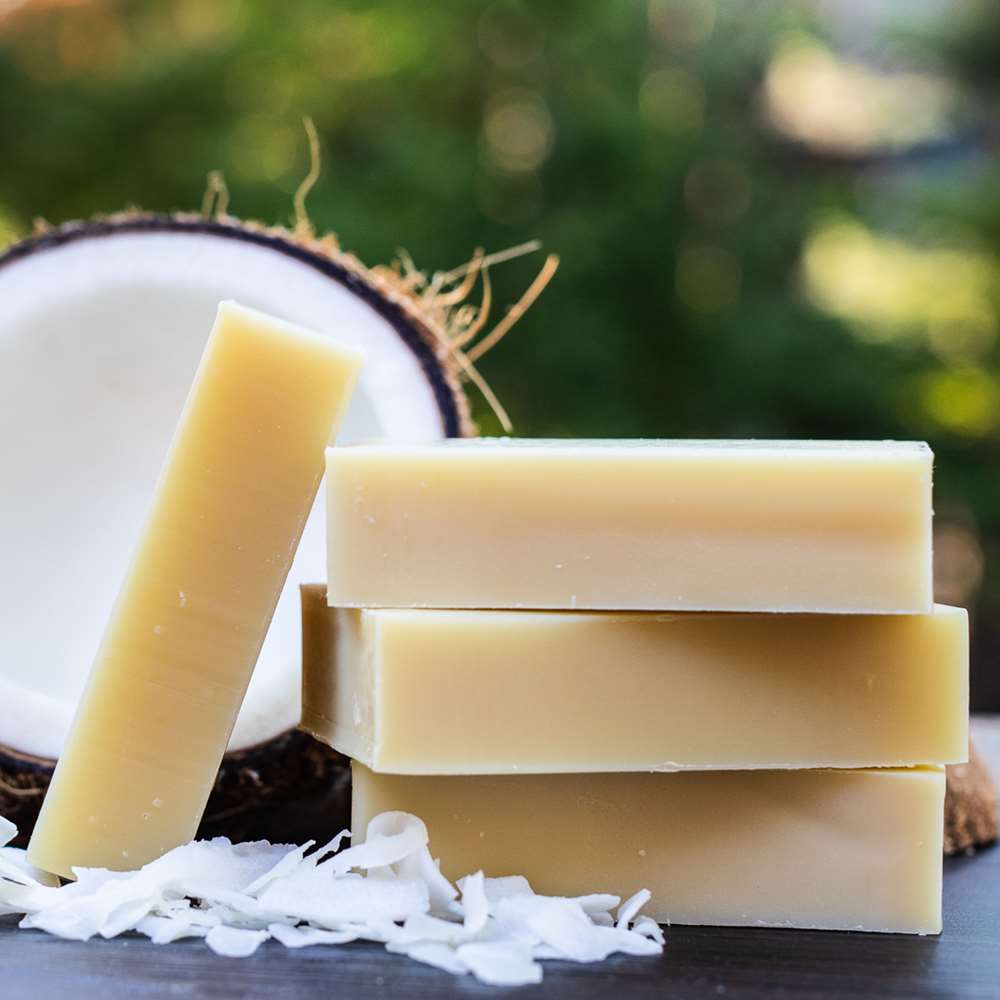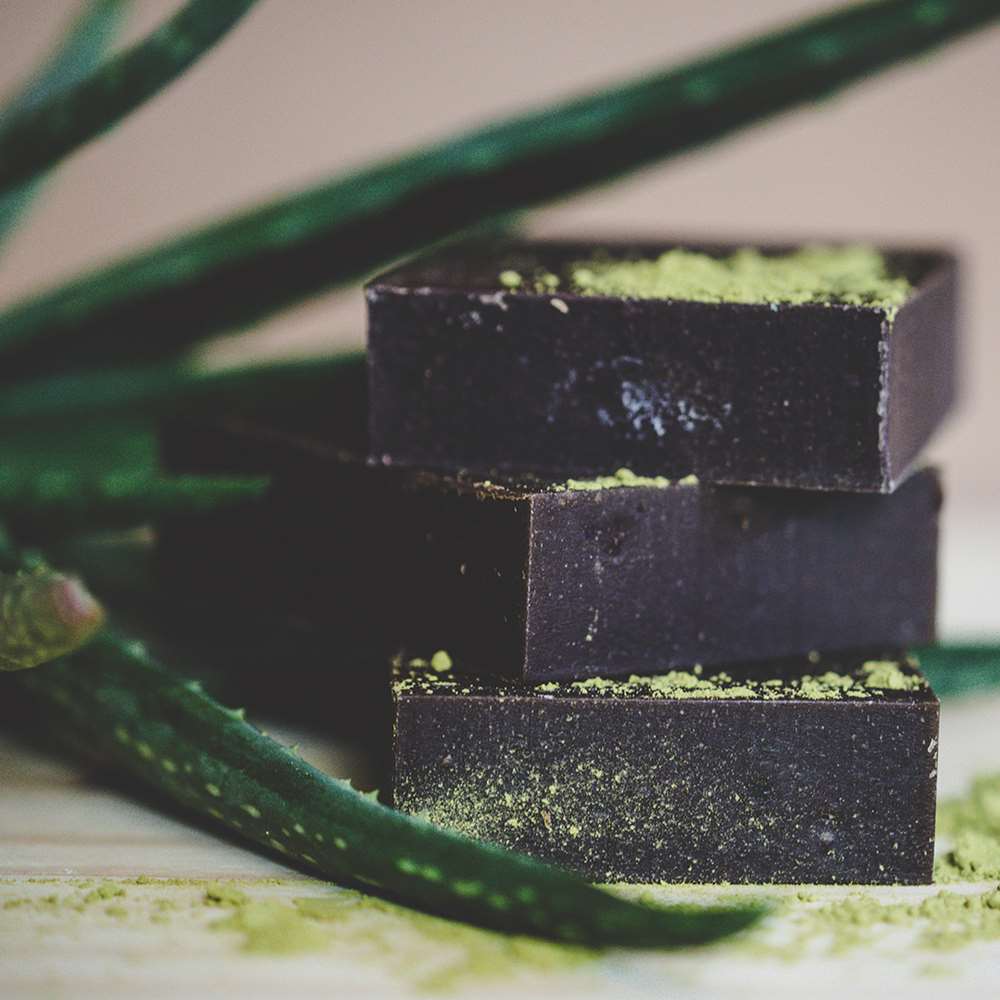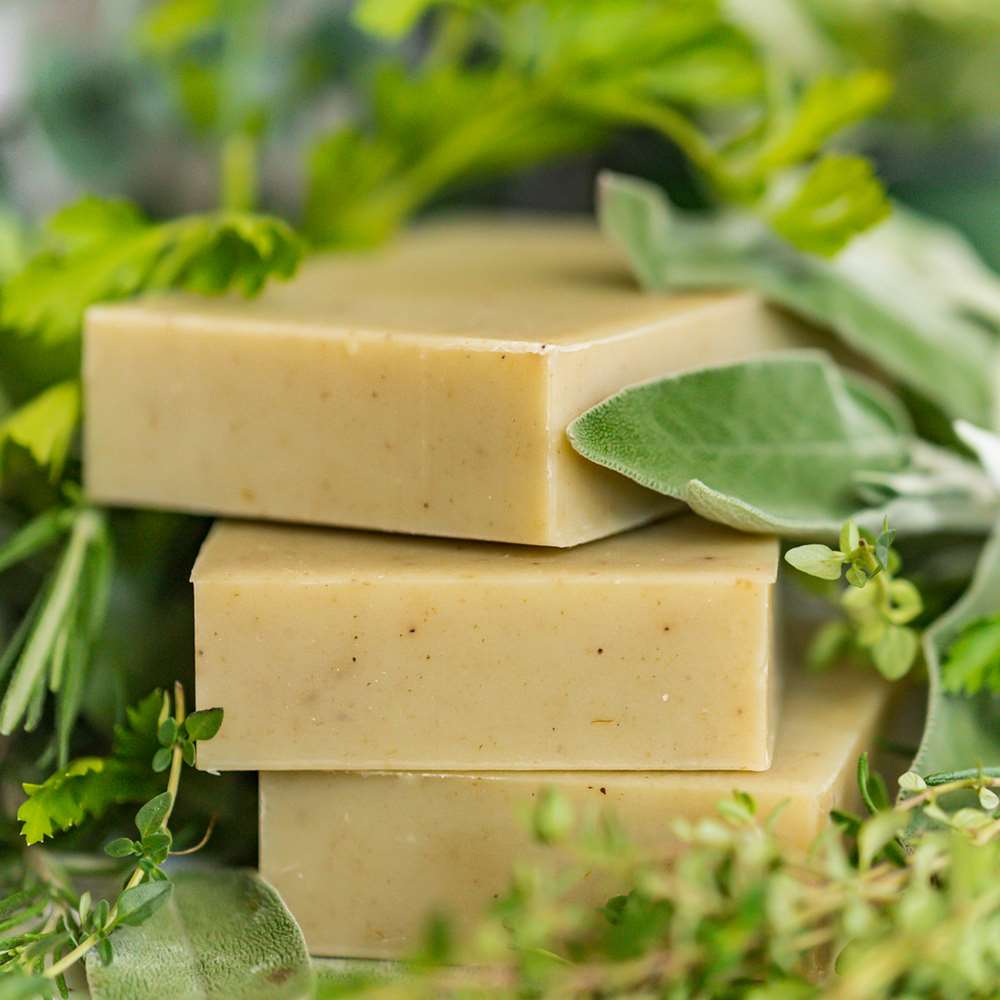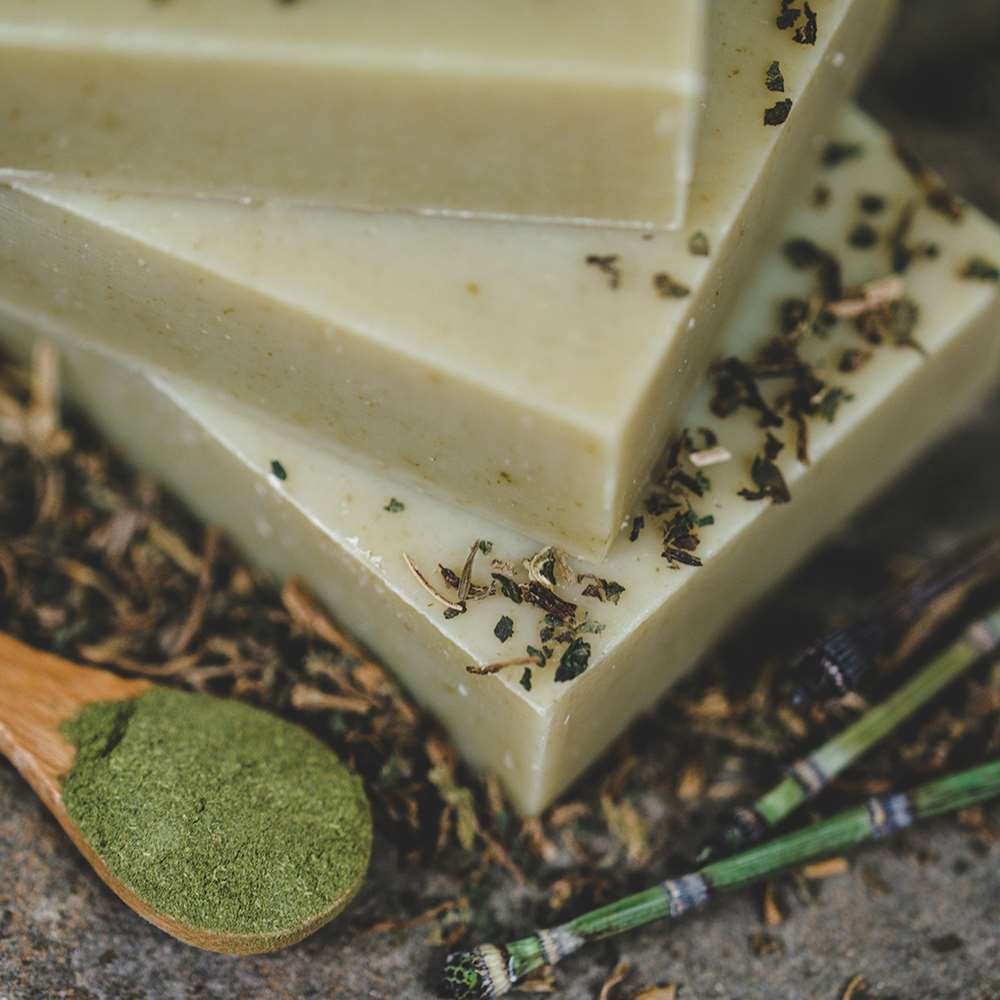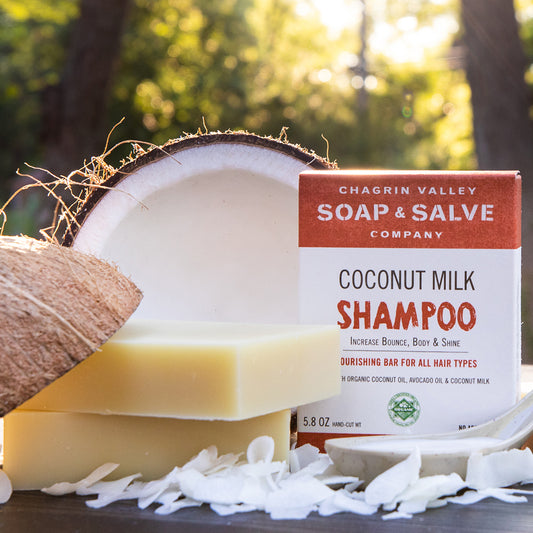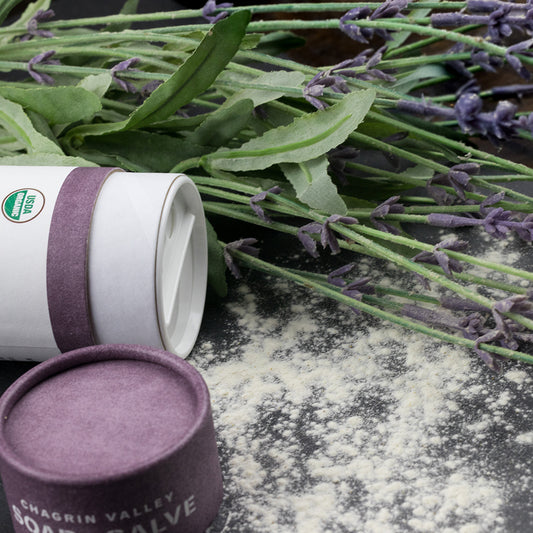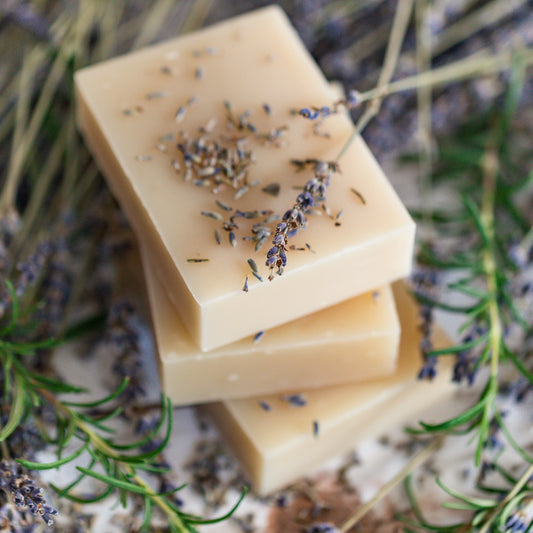Everything You Want To Know About Natural Shampoo Bars!
What Are Natural Shampoo Bars?

Natural shampoo bars, one of my favorite early discoveries, are conditioning shampoos in a solid bar that clean hair naturally.
Our recipes are carefully crafted using organic oils, butters, botanicals, herbal infusions, and essential oils that are known to help nourish the hair and scalp
Super rich with loads of fluffy lather, and natural ingredients that gently clean the hair and scalp without stripping away natural protective oils.
Enjoy more shine, increased volume, less frizz, and more defined curls when you switch from a detergent-based shampoo.
Although they may seem new to many, solid soap shampoos were commonly used before liquid detergent shampoos became popular in the 1940s.
In the book Hints on Health, published in 1852, William Edward Coale writes, "To cleanse the hair, there is nothing better than soap and water . . . the soap, of course, should be mild, and well and plentifully rubbed in, and afterward thoroughly removed with an abundance of water.”
The ad, taken from Duke University Libraries Digital Collection, is a 1920 advertisement for "shampoo" soap.
If you are not used to solid shampoo bars, the concept may sound a bit strange, but they are WONDERFUL!
Our natural shampoo bars are made in small batches using recipes meticulously developed to naturally clean and condition your scalp and leave hair soft, shiny, clean, and most of all healthy.
Why I Began Making Shampoo Bars?
For Me and You!
 Read the ingredients in a bottle of liquid shampoo—there is the answer.
Read the ingredients in a bottle of liquid shampoo—there is the answer.
They are a "chemical soup" made with synthetic ingredients --preservatives, detergents, foam boosters, fragrance oils, and synthetic colors -- none of which I wanted on my hair!
These ingredients can strip moisture from the hair and scalp and cause dryness, brittleness, and scalp irritation.
Many of these ingredients are also linked to allergic reactions and more.
A natural shampoo bar is an awesome hair care product for both you and our planet.
Why do I keep emphasizing "Natural" Shampoo Bar? Because there are shampoo bars that are made with synthetic detergents. These syndet (synthetic detergent) bars are basically liquid shampoo without the water or the bottle. They will help keep plastic from our landfills, but they are not natural shampoo bars.
If you see ingredients like Sodium Coco Sulfate and/or Sodium Cocoyl Isethionate, they are syndet shampoo bars.
For The Environment
No plastic bottle! Shampoo bars help decrease our environmental impact by getting rid of plastic bottles. According to an article written by Trevor Nace, a Ph.D. geologist, humans buy a million plastic bottles per minute and 91% of all plastic is not recycled.
Eliminating products made from synthetic ingredients also helps to decrease groundwater contamination. Everything we send down the drain can end up in local waterways.
The Environmental Protection Agency (EPA) has found chemicals from personal care products in nearly every water supply they have tested. For more information read, "Why Use A Natural Shampoo Bars?”
I have also found that I need less water to form a fluffy lather with our natural shampoo bars. So perhaps they help a bit with water conservation.
Are Your Shampoo Bars Soap or Are They Real Shampoo?
We often get this question. It is difficult to answer because I don't understand the definition of "real shampoo."
Any cleansing product, whether it is made for your body, your hair or your dishes, needs something called a surfactant in order to clean.
Soap is a natural surfactant and as you read above, before synthetic detergents were invented all shampoos were a solid bar of soap. Detergents are simply synthetic surfactants.
Bottled shampoo and some bar shampoos are made with detergents (synthetic surfactants). So if your definition of shampoo is a product made with synthetic detergents then I am proud to say that our natural shampoo bars are soap.
Learn more about surfactants on our blog How Does Soap Work?
What's The Difference Between Soap Bars And Shampoo Bars?
 While the process of making a shampoo bar is the same as making soap and the ingredients seem similar, a well-formulated shampoo bar is not your typical soap bar.
While the process of making a shampoo bar is the same as making soap and the ingredients seem similar, a well-formulated shampoo bar is not your typical soap bar.
Yes, they are soap, but shampoo bars are formulated with carefully selected ingredients that promote a moisturized scalp and make them ideal for well-conditioned, shiny hair.
Shampoo bar "recipes" are tweaked to use different proportions of conditioning oils and butters and to include botanicals, like nettles and horsetail, herb-infused oils, and essential oils that are known to help nourish the hair and scalp.
Each of our shampoo bar selections contains a different blend of natural plant oils, essential oils, and herb-infused oils. Each shampoo bar recipe is different and unique.
Learn More Blog: What Is The Difference Between Soap Bars and Shampoo Bars?
The Best Things About Natural Shampoo Bars
Most people find benefits in switching to a shampoo bar such as increased volume, faster-growing hair, reduced dandruff, shinier hair, and less frizz. If you have curly hair, most people say that they have more defined curls with better control. Shampoo bars are good for all hair types and hair lengths.
Really Truly Natural
Our shampoo bars are made with natural and organic ingredients.
- They contain no foam boosters or detergent surfactants like sodium lauryl sulfate (SLS) or sodium coco sulfate (SCS)
- They contain no artificial fragrance, color, preservatives, alcohol, urea, formaldehyde, DEA, propylene glycol - or any of the other synthetic hair care additives that can cause dry, itchy, and irritated scalp and contribute to hair loss, especially if you shampoo every day!
Ingredients Sourced from Nature
 Our ingredients are sourced from nature, not simply derived from nature.
Our ingredients are sourced from nature, not simply derived from nature.
Is there a difference? Quite simply, YES!
Unfortunately, since there are no legal definitions for words such as "natural," "naturally sourced," "naturally derived," "derived from nature," "derived from natural . . .," etc., these words can be highly misleading for even the savviest consumer! As a result, shoppers often believe they are purchasing a natural product when it may actually be closer to, or even completely synthetic.
We believe in using ingredients that are found in nature, naturally occurring, rich in nutrients, and as close to their original form as possible. Ingredients like cold-pressed oils and butters, organic essential oils, dried herbs, and botanicals.
Words like "plant-derived" or "naturally derived" simply mean that the ingredient started out at some point as a whole plant, but these words do not account for how the plant is processed, how it is modified, or what is added before it reaches its final form.
Gentle & Moisturizing
Our bars, packed with organic herbs and oils to hydrate hair and nourish the scalp, do not strip hair of natural oils allowing hair to retain moisture while balancing hair oil production. They are ideal for those with a sensitive scalp or color-treated hair. Free from artificial fragrances, preservatives, parabens, or detergents, natural shampoo bars give your hair and scalp a break from synthetic ingredients that often rob the scalp of natural moisture.
Environmentally Friendly
Biodegradable. No plastic bottles. No landfill impact. No synthetic chemicals going on your body or in our waterways. We are proud to offer a natural shampoo bar that comes in eco-friendly packaging and is made from ingredients that are sustainable, cruelty-free, fair-trade, and USDA organic whenever possible.
Cost-Effective
Natural shampoo bars last a long time and for many, there is no need to buy a separate conditioner. For most people, 1 bar of shampoo will last about as long as 2 to 3 bottles of liquid shampoo.
Convenient & Great for Traveling
A solid shampoo bar will simplify travel. They won't leak and can be packed in carry-on luggage while complying with TSA regulations.
Our fluffy lathering shampoo bars can double as body soap and shaving soap, which makes them great for camping, traveling, business trips, and the gym.
Customer Feedback
After switching to a natural shampoo bar, customers reported . . .
- more shine
- increased volume
- less frizz
- less shedding
- more defined curls
- increased manageability
- retained color longer
- a decrease in dandruff and scalp irritation
How Do I Use a Shampoo Bar?
Your shampoo technique may be the most critical part to ensure success with a shampoo bar.
The purpose of shampooing your hair is to remove dirt and excess oils from the roots. You do NOT need to apply shampoo from roots to tips. Focus only on your scalp. As you use your fingers to rinse the lather through the strands, there is enough shampoo to clean the length.
This technique helps prevent pockets of soap residue in your hair that can make hair feel tacky.
Our Favorite Technique
 This is the best technique if you are new to shampoo bars, have adjustment issues, or have long or thick hair.
This is the best technique if you are new to shampoo bars, have adjustment issues, or have long or thick hair.
Wet Hair: One of the most important steps is to begin with thoroughly wet hair--I mean a lot of water. Be sure that the water saturates your hair all the way down to the roots.
Create the Lather: There are two possible ways both of which help prevent pockets of soap residue left in your hair that can make hair feel tacky.
- Create a nice foamy lather by rubbing the wet bar between your hands, a soap pouch, or a natural sponge, and use only the lather to wash your scalp.
- Create a nice foamy lather by rubbing the shampoo bar on the TOP of your head only. Rub in only one direction to prevent tangling.
Massage the Lather into your Scalp only at the roots of the hair until you work up a really good lather
- It is very important to work the shampoo into your scalp with water and really build up a good lather so there are no patches of soap left on your hair.
- Lathering up also allows the dirt and extra oils to be washed away.
- If the lather is not foamy enough, add more water.
Using your Fingers like a Comb: smooth the lather down the length of your hair as you rinse with water. To prevent tangles, be sure to always work from the top down, use your fingers like a comb, not a mixer, and don't pile your hair on your head.
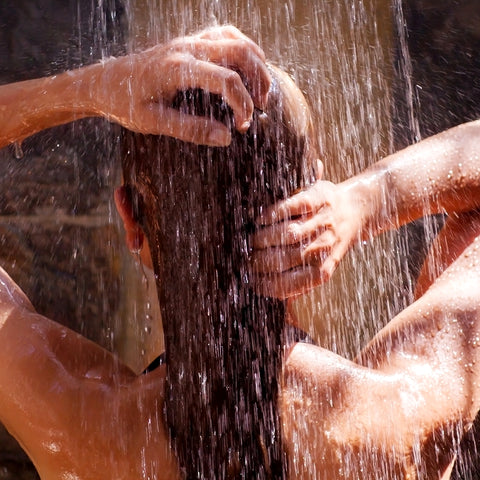 Rinse, rinse, rinse, rinse and rinse again. I cannot stress how important this step is to shampoo bar success. In order to remove the excess shampoo, which can leave a filmy feeling and weigh hair down, do NOT rush this step!
Rinse, rinse, rinse, rinse and rinse again. I cannot stress how important this step is to shampoo bar success. In order to remove the excess shampoo, which can leave a filmy feeling and weigh hair down, do NOT rush this step!
The rinsing should take longer than washing and lathering time.
- If your hair is long or thick, lift up sections of your hair to ensure that all of the shampoo is rinsed clean. Don’t neglect parts of your head that are more difficult to reach, such as the nape of your neck or the back of your head.
- Repeat if desired but I found that as my hair adjusted I only needed one round of shampoo.
Relax, you can wash your hair with natural shampoo every day if you desire! It cleans thoroughly without drying or coating your hair or scalp. Dry and style your hair as normal.
If you are new to shampoo bars, want more detailed information or would like Ida's Shampoo Technique for long hair please read our blog How To Use a Natural Shampoo Bar
Which Is the Best Shampoo Bar For My Hair?
Although each of our shampoo bars shares similar ingredients, the formulation of each recipe is slightly different. The proportions of the base oils and butters, the type of infused oils, botanicals, and essential oils in each shampoo bar recipe are different.
Some people can use any shampoo bar, but for others different hair types respond to different recipes.
To best match your hair type with the best shampoo bar use the filters located on the left side of the main shampoo product page. Or see our "Help Me Choose a Shampoo Bar" page.
How Often Should I Wash My Hair with a Shampoo Bar?
This is a difficult question to answer since every person is unique. Our shampoo bars can be used daily depending on your hair type. It is really a matter of finding the best balance for you.
I like the way my hair looks after shampooing, so I tend to wash my hair every day, even though my hair has become drier with age.
How Well Do Shampoo Bars Lather?
 Super rich with loads of fluffy lather, our natural shampoo bars are made in small batches using recipes meticulously developed to naturally clean and condition your scalp and leave hair soft, shiny, clean, and most of all healthy.
Super rich with loads of fluffy lather, our natural shampoo bars are made in small batches using recipes meticulously developed to naturally clean and condition your scalp and leave hair soft, shiny, clean, and most of all healthy.
Although foamy lather is not necessary for cleaning, most people agree that a shampoo MUST have lots of lather.
Our natural shampoo bars, made with organic lathering oils like coconut, babassu, and castor bean, do not need synthetic detergents or foam boosters like, Sodium Coco Sulfate.
How Long Will A Shampoo Bar Last?
With the water removed, this concentrated shampoo bar can do the job of 4 to 5 bottles of commercial liquid shampoo and there is no plastic bottle to throw away afterward. How long a bar will last depends on how many people are using it and how often you wash your hair. Here are some tips:
- Don't let your shampoo bar sit in a puddle of water
- Store soap on a well-drained soap dish
- Allow soap plenty of fresh air to dry between uses
- If your bar ever gets waterlogged and becomes gooey, simply set it on a draining soap dish for a few days and let it dry out thoroughly
Also, since many don't need to use conditioner, that’s another plastic bottle saved and more money in your pocket!
Do I Still Need To Use Conditioner With A Shampoo Bar?
Some folks do, and some don't!
For Body & Luster
If you are using a conditioner because your hair is dull, lacks luster, or is dry, you may NOT need a conditioner (that's another plastic bottle saved!).
You may not need the typical moisturizing conditioners that people use to replace the natural oils stripped by detergent shampoos.
Commercial shampoos contain synthetic surfactant that can be drying to your hair and scalp, as a result conditioners are usually needed.
Things to try:
- Apple Cider Vinegar (ACV) rinses are an excellent addition to any natural hair care routine and can help bring back body and shine to dull, lackluster hair.
- Try a shampoo bar like the henna that helps with body, bounce and shine.
- Use a hair oil or hair balm.
For Tangly Hair
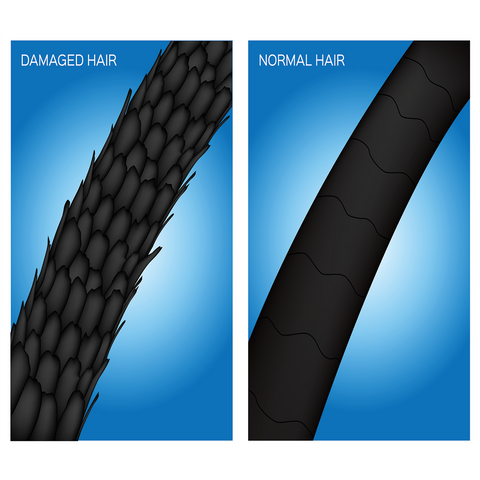 Hair tangles result when individual hairs go in different directions and intertwine.
Hair tangles result when individual hairs go in different directions and intertwine.
The outer layer of the hair, the cuticle, is made of overlapping layers of long scales that lie along the surface of the hair like shingles on a roof.
The condition of the cuticle scales in part determines whether you are going to have tangly hair. When you shampoo or even wet your hair, the cuticle opens making it prone to tangling.
The way you shampoo you hair and your hair type can affect hair tangles. I have long fine, thin hair that is very prone to tangling. Just imagine all of those little strands of hair as very thin strings—now put little burrs on the strings (the open cuticle) and you can see my problem.
I rub the shampoo bar in one direction on the top of my head and work up a lather by massaging my scalp only. I also use my fingers like a comb and don't pile my hair on my head.
When I used a commercial shampoo I would go through a 16-ounce bottle of conditioner every week—just to get a comb through my hair. Now I use an apple cider vinegar (ACV) rinse. Besides creating tangle-free locks, I also love the way it makes my hair look and feel. As I have gotten older my hair has become drier. So, I now use a very dilute ACV rinse or leave on ACV spray 2 or 3 times per week.
Can I Use A Shampoo Bar With Color-Treated Hair?
Most people find that shampoo bars are easier on color-treated hair than commercial shampoos.
We have many customers who color their hair and use our gentle shampoo bars. One customer who "darkens" her hair wrote to tell us that she is now able to go one month longer before recoloring her hair.
Another customer who "lightens" her hair, wrote that the color stays "nicer" longer and she does not get that "brassy" blonde color anymore.
But since everyone's hair and coloring products are different, please do a strand test to judge for yourself. To do a strand test, shampoo a strand of hair in a non-conspicuous area and rinse. Notice if there are any changes.
Please remember that since there are no silicones or synthetic coatings in our shampoo bars, a damaged hair shaft will not be covered with the chemical coatings you will get from a silicone shampoo or conditioner. If your hair is damaged from chemical color or other harsh treatments, your naked hair may be exposed.
If your hair is damaged try one of our hair oils or conditioners to help replenish the oils in damaged and colored hair.
The good thing about the shampoo bars is that they actually prolong color - before I started using them, I'd have to dye my hair every 3 weeks, now it's every 5-6 weeks. Venessa, Indiana
Can I Use A Shampoo Bar With Permed Hair?
 We have many customers who perm their hair and use our shampoo bars. Because they are simply soap, shampoo bars will not strip natural protective oils from your hair.
We have many customers who perm their hair and use our shampoo bars. Because they are simply soap, shampoo bars will not strip natural protective oils from your hair.
One customer told us that her perms stay "fresher" longer since she started using shampoo bars. But since everyone's hair and perming products are different, please do a strand test to judge for yourself.
Again if your hair is damaged due to over-processing try one of our hair oils or conditioners to help replenish the oils in damaged hair.
Is There An Adjustment Period?
Natural and organic personal care products, including shampoo bars, offer a personal experience that is quite unique. While they may work wonders for one person, for others they may offer some challenges. That is perfectly fine.
We use only natural ingredients in our shampoo bars and the chemicals in commercial shampoos make for quite a different shampoo experience. It is all about paying attention to and listening to your own body chemistry as you make the “transition” for the first time!
While many folks have no problem with their hair adjusting to a new routine, some do.
The transition period can range from a few days to a few weeks. Hair length, hair type, hair damage, natural scalp secretions, and the amount of residue or build-up from hair products can all impact the actual length of time.
When you first begin, your hair or scalp may become oily or dry or even switch between the two extremes. You may have increased tangles or frizz and the hair shafts may feel weird or waxy.
This is your hair, which has been addicted to chemical-laden shampoo, literally freaking out, going through withdrawal, and learning to live a chemical-free life. It's not easy!
It will go away! It may take some patience, but if you can persevere, your reward will be healthy, soft, and silky hair.
There isn't one common thread among people who have adjustment issues, but there are some common reasons your hair may feel different as you bring your hair back to its natural, healthy state and your hair literally has to learn how to live without the chemicals.
Learn More Blog: "Tips Adjusting to Natural Shampoo Bars"
Not All Shampoo Bars Are Natural
 Technological advances have led to many wonderful discoveries. Unfortunately, in the personal care industry, this usually means the creation of another new synthetic ingredient.
Technological advances have led to many wonderful discoveries. Unfortunately, in the personal care industry, this usually means the creation of another new synthetic ingredient.
For example, when consumers asked companies to stop using harsh sulfates like SLS in shampoo, the companies simply substituted one synthetic ingredient for another.
Many shampoo bars contain synthetic surfactants or detergents. These "Syndet" (synthetic detergent) bars are made with ingredients like sulfates, similar to those in liquid shampoos. While these bars absolutely reduce the use of plastic bottles, and some are made with a few natural ingredients, read the the ingredients!
Companies who sell these bars state that the detergent surfactants they use are safer and milder than traditional surfactants like SLS.
We don't know what research will tell us down the road about these surfactants and am not here to argue that point. The transition time may be less with syndet bars than with natural shampoo bars, but syndet bars are not natural.
I know that I am biased, but for skin and hair care I believe that back-to-basics is better.
Our natural ingredients harness the power and simplicity of nature to cleanse, soothe and protect your skin & hair while maintaining a respect for our planet.

How To Use A Natural Shampoo Bar
Hair and Scalp Build-Up? What Can Help?
Make Your Own Natural Vinegar Hair Rinse
How Does Your Water Affect Your Hair?
If You Try A Shampoo Bar Once And It Does Not "Work" Is It a Sign That It Is Bad For You?
